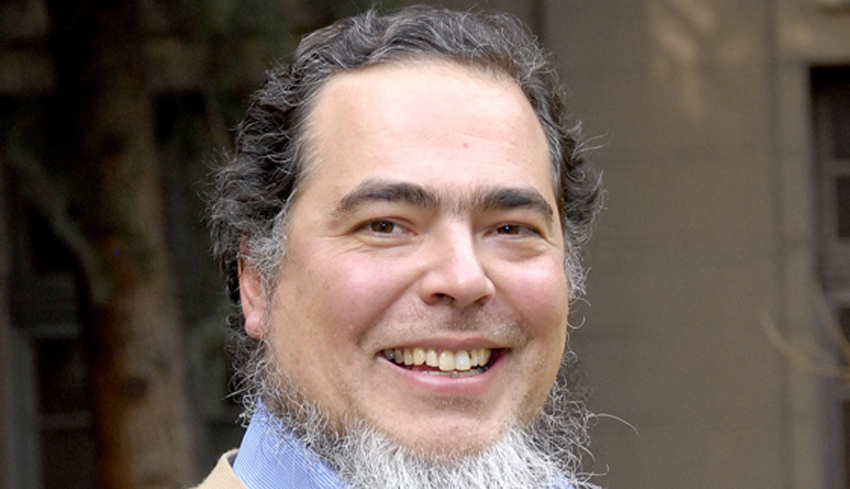
ELARD KOCH: Chile and Ireland, where motherhood really is safe
ELARD KOCH explains why both Chile and Ireland are placed among the world safest nations for motherhood in their respective regions.
What makes Chile and Ireland similar countries in matters of maternal health and abortion? In September 2012 I had the invaluable opportunity to participate as a member of the Committee on Excellence in Maternal Healthcare, convened in Dublin to analyze the experience of Ireland, Chile, and other countries with a high standard in maternal health around the world. The meeting was crowned with the Declaration of Dublin
Both Chile and Ireland are placed among the world safest nations for motherhood in their respective regions.
In the case of Chile, excluding deaths due to non-obstetric causes (also called indirect causes), 30 maternal deaths were registered during 2010, with a mortality ratio of 11.9 per 100,000 live births. This places Chile second only to Canada in the American continent, with better maternal health than the United States of America.

In Ireland, only three maternal deaths were registered out of 74,976 live births, giving a mortality ratio of four per 100,000 live births, and placing this country among the five nations with the lowest maternal mortality in Europe.
Interestingly, these two countries have the least permissive abortion laws in the world, while still displaying negligible abortion-related mortality. This challenges the myth according to which the restriction of abortion leads to hundreds — even thousands – of deaths due to abortion. That is untrue.
Chile: abortion deaths down 99 percent
Deaths related to abortion in Chile decreased 99 percent in 50 years. Moreover, this decrease continued even after the banning of “therapeutic abortion” in 1989, confirming that the law allowing such abortions was completely futile in reducing maternal mortality or in addressing exceptional cases where the life of the pregnant mother is at risk. This is not a minor issue, since abortion mortality is a recurrent argument used to promote abortion legalization in Ireland, Chile, and Latin America in general.
During the 1960s, almost 45 percent of hospitalizations due to abortion were associated with induced abortion. The continuous decrease in hospitalization rates due to any kind of abortion, whether spontaneous or induced, in Chile since 1967 suggests that the practice of induced abortion also decreased in parallel with the decrease in abortion-related mortality. In fact, estimations performed a few months ago show that only 10 to 19 percent of all hospitalizations due to abortion in Chile can be attributed to induced abortion over the last decade.
Most of induced abortions in Chile today would be taking place by resorting to the illegal acquisition of misoprostol in the black market, an apparently lucrative business without proper control, even though it is illegal — a fact that undoubtedly demands the attention of health and judicial authorities, especially due to the associated health risks to the mother.
In Spain, legal abortion and a tenfold increase
In statistical terms, abortion rates in Chile and Ireland are, on average, 10- to 12-fold lower than those in countries with legal abortion, such as Spain, whose abortion rate has increased 10-fold since its decriminalization in 1985. In absolute numbers, abortions increased from 16,700 in 1985 to almost 115,000 per year at the present. Repeat abortions by the same women increased from 20 percent to over 35 percent, suggesting that legal abortion is being used as a sort of contraceptive method by young Spanish women. In the case of Chile, objective estimation methods place the figure of induced abortion between 8,270 and 20,675 each year over the last decade, with repeated abortions less likely for obvious reasons.
The explanation for this contrast is logical: while legal permission facilitates access and increases the incidence of elective abortion, its legal restriction hinders access and decreases its incidence.
Obviously, the dissuasive effect of a less permissive law cannot completely eliminate the problem, but it can decrease it. In fact, the purpose of such a law is similar to that of legislation banning harmful drugs. In addition, moral concerns or social stigmatization regarding induced abortion are stronger in countries such as Chile and Ireland. Thus, it is reasonable to think that a significant proportion of women considering abortion as an alternative to unplanned pregnancy choose to continue with it rather than taking a chance in the clandestine abortion world.
Surprisingly, anachronistic references to “therapeutic abortion” are stressed over and over again to reinstate useless legislation that lends itself to interpretative abuse.
For instance, a complete article published by The Clinic in 2003, entitled “La vía chilena hacia el aborto” [“The Chilean way of abortion”], documents the case of the Chilean physician Aníbal Faúndes and his team at the Barros Luco Trudeau Hospital during 1973. “Therapeutic abortion” was loosely interpreted there, with reasons ranging from socioeconomic to simple choice. Thousands of elective abortions were hypocritically performed under that law.
Loose interpretation of grounds for abortion, leading to the abuse of more permissive laws, appears to be a more general issue. In fact, most of the abortions carried out in England and Spain are performed for “reasons of mental health” even though there is no scientific evidence supporting abortion as a therapeutic indication for any mental health related problems.
Responsible medical ethics is enough
The valuable Chilean experience shows that medical ethics is sufficient to deal with every case of apparent conflict between the life of the mother and that of the gestating child. Moreover, a straight ethical reasoning operating within the current law allows a dynamic adaptation to the advance of technology and scientific knowledge, promoting a healthy, reflective, and responsible medical praxis, while preventing bad medical praxis.
Finally, if the goal of nations such as Chile and Ireland is to maintain their high standard in maternal healthcare, simultaneously protecting women’s health and human life in gestation, while still displaying a low rate of induced abortion, the way certainly does not involve modifying their current abortion laws.
ELARD KOCH is an Epidemiologist at the Institute of Molecular Epidemiology (MELISA) in Concepción, Chile. This article is a slightly edited version of an article appearing on Chile B and is reproduced with permission.

Featured
- Abortion coercion has arrived in Ireland – the NWC are silent
- Review of at-home abortions 'needed after coercion case'
- French Govt to remind 29-year-olds of biological clock
- Huge factor in decline in primary school numbers ignored
- Germany Denies Promoting Abortion Abroad—While Funding Pro-Abortion NGOs
- Govt don’t oppose Coppinger abortion bill at 1st stage
- March for Life: Vance, the White House, and a Divided Pro-Life Movement
- Paris’ Annual March for Life Puts Euthanasia in the Spotlight
- Britain’s seemingly limitless abortion rate
- The importance of the work carried out by Every Life Counts
- Puerto Rico officially recognizes unborn children as ‘natural persons’
- Assisted suicide laws stalled by “complex” legal issues
- Yes, that hideous celebration of 300 abortions is real
- White Crosses Memorial: Dungarvan once again pays its respects to our aborted babies
- Josiah: Abortion Survivor
- Rally for Life 2025


























